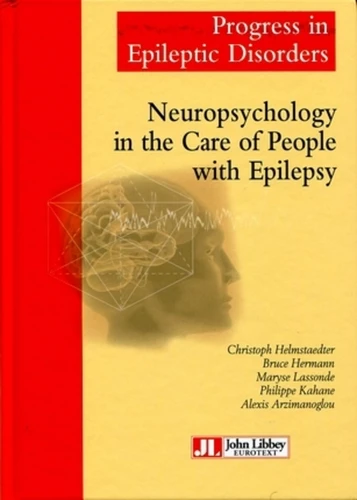Neuropsychology in the Care of People with Epilepsy. Volume 11.
Par : , , , ,Formats :
- Paiement en ligne :
- Livraison à domicile ou en point Mondial Relay indisponible
- Retrait Click and Collect en magasin gratuit
- Réservation en ligne avec paiement en magasin :
- Indisponible pour réserver et payer en magasin
- Nombre de pages338
- PrésentationRelié
- Poids0.852 kg
- Dimensions17,7 cm × 24,8 cm × 2,2 cm
- ISBN978-2-7420-0808-7
- EAN9782742008087
- Date de parution22/09/2011
- CollectionProgress in Epileptic Disorder
- ÉditeurJohn Libbey
Résumé
Having appeared in the 1930s in Montreal, standardised neuropsychological evaluation has become an essential tool in the clinical diagnosis and evaluation of surgical epileptic patients. Nevertheless, despite great progress over the last 20 to 30 years in the diagnosis and medical treatment of epilepsy, clinical neuropsychology still remains largely associated with surgical epilepsy, particularly surgery of the temporal lobe.
Clinical neurology has still not managed to clear a way in the daily practice with patients with all types of epilepsy despite significant advances in cognitive neuroscience and a large number of clinical studies on epilepsy and cognition. How is it that there are only rarely major advances in the field of clinical neuropsychology? It has long been time for this question to be asked, and for an attempt to be made to bring about changes.
This was the aim of the Toronto workshop and the result of this book. Every approach was debated, providing important elements to reflect on and allowing a great forum for exchanges. This book includes the communications from the main participants and comments from some others on specific subjects.
Clinical neurology has still not managed to clear a way in the daily practice with patients with all types of epilepsy despite significant advances in cognitive neuroscience and a large number of clinical studies on epilepsy and cognition. How is it that there are only rarely major advances in the field of clinical neuropsychology? It has long been time for this question to be asked, and for an attempt to be made to bring about changes.
This was the aim of the Toronto workshop and the result of this book. Every approach was debated, providing important elements to reflect on and allowing a great forum for exchanges. This book includes the communications from the main participants and comments from some others on specific subjects.
Having appeared in the 1930s in Montreal, standardised neuropsychological evaluation has become an essential tool in the clinical diagnosis and evaluation of surgical epileptic patients. Nevertheless, despite great progress over the last 20 to 30 years in the diagnosis and medical treatment of epilepsy, clinical neuropsychology still remains largely associated with surgical epilepsy, particularly surgery of the temporal lobe.
Clinical neurology has still not managed to clear a way in the daily practice with patients with all types of epilepsy despite significant advances in cognitive neuroscience and a large number of clinical studies on epilepsy and cognition. How is it that there are only rarely major advances in the field of clinical neuropsychology? It has long been time for this question to be asked, and for an attempt to be made to bring about changes.
This was the aim of the Toronto workshop and the result of this book. Every approach was debated, providing important elements to reflect on and allowing a great forum for exchanges. This book includes the communications from the main participants and comments from some others on specific subjects.
Clinical neurology has still not managed to clear a way in the daily practice with patients with all types of epilepsy despite significant advances in cognitive neuroscience and a large number of clinical studies on epilepsy and cognition. How is it that there are only rarely major advances in the field of clinical neuropsychology? It has long been time for this question to be asked, and for an attempt to be made to bring about changes.
This was the aim of the Toronto workshop and the result of this book. Every approach was debated, providing important elements to reflect on and allowing a great forum for exchanges. This book includes the communications from the main participants and comments from some others on specific subjects.

